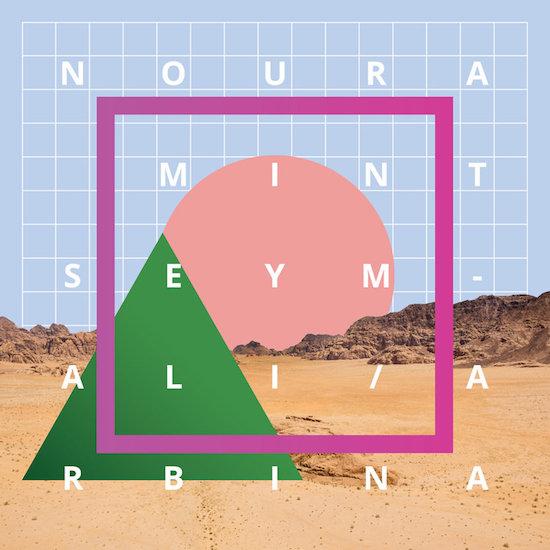Noura Mint Seymali is without doubt one of the most compelling traditional African singers to emerge on the international stage in the past decade. She was raised and schooled in the rarified world of Mauritanian griots, who, unlike their counterparts in Mali and elsewhere, do not typically perform in non-traditional settings. Noura’s stepmother, the late Dimi Mint Abba, was an exception to this rule, and in many ways a role model. “Richa,” one of the standout tracks on this, Noura’s second international release, was composed by Dimi’s husband and Noura’s father, Seymali Ould Ahmed Vall, a gifted composer who traveled and studied, and always encouraged Noura to sing for the world, not just to her own people. With a folksy lilt and a catchy melody—vaguely reminiscent of “Oh My Darling”—the song’s poetic lines celebrate the artist: “Art’s plume is a balsam, a weapon, and a guide for enlightening the spirits of men.”
Noura’s quartet gives “Richa” and the other nine songs here bracing, urgent reads. The jangling tonality of Noura’s ardin harp blends beautifully with the fluid guitar riffs played by her virtuoso husband, Jeiche Ould Chigaly. A guitar needs to be re-fretted to play the quarter-tone scales used in this music. The resulting moody modalities are filtered through Jeiche’s watery, flanged electric guitar tone to create an almost human guitar voice that runs through this entire recording. Ousmane Touré on bass and American Matthew Tinari on drums ground the group’s sound in crisp solid rhythms that miraculously merge funk-rock and multilayered 6/8 rhythms.
All this lays the table for Noura’s spectacular vocal with its soaring crescendos, fluttering ornamentations and soul-searing melodies. On two songs Mayssa Hemed Vall sings backup, adding warm harmonies to key refrains. But mostly the listener locks into the arc of Noura’s hypnotic voice, which can coax pleasing pop hooks out of unfamiliar quarter-tone scales. There is not a weak track here, but I’ll single out “Ghizlane,” which begins in with a brief, arrhythmic vocal improvisation and tumbles into a complex, loping rhythm—a hybrid of 4/4 and 6/8—and then lifts steadily like an enormous aircraft gradually taking flight. Actually, the song describes seeing a giraffe at an oasis and wishing to “run behind the herd.” That image of giraffes running makes the song’s racing crescendo wonderfully visual.
The lyrics to many of these songs address the divine, asking for guidance and mercy. Arbina itself means a call to God. One song, “Mohammedoun,” praises the prophet Mohammed and includes a line that one of Noura’s relatives wrote and sang to her over WhatsApp—an unexpectedly modern twist. Elsewhere we find aphoristic stories and celebrations of the traveling musician’s life. Many griot songs deliver volleys of praise to patrons and noble ancestors, difficult for outsiders to appreciate. So the fact that these more literary texts are translated and explained in the sleeve notes is a welcome addition to one of the most exciting African releases of the year.









